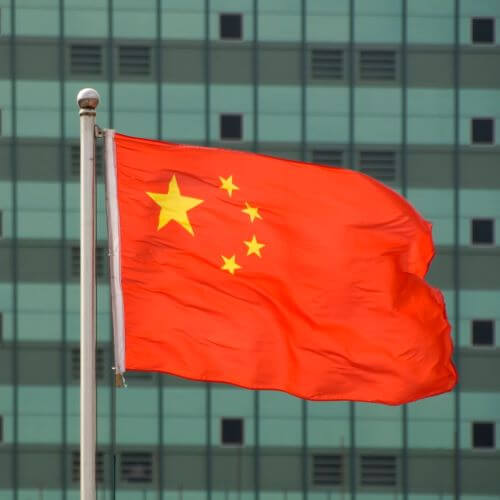After three years, China's telcos turn off COVID-19 travel tracking app
With its widespread use and potential for abuse, the COVID-19 travel tracking app won't be missed by Chinese citizens as the country pivots away from zero-COVID.

China Mobile, China Telecom and China Unicom say they have switched off the national travel tracking app that recorded people's movements to prevent the spread of COVID-19.
In operation since February 2020, the app was suspended at midnight Monday as China executes a rapid pivot away from zero-COVID. The three telcos all issued statements Monday declaring they would terminate the app and delete the data.
Figure 1:  With its widespread use and potential for abuse, the app won't be missed by Chinese citizens.
With its widespread use and potential for abuse, the app won't be missed by Chinese citizens.
(Source: Alan Novelli/Alamy Stock Photo)
The "mobile itinerary" app recorded people's movements over the previous 14 days, indicating whether they had been in the proximity of a "high-risk" infection zone.
It is fair to say China's long-suffering citizens won't be missing it. Too often the app required them to lockdown or quarantine on the basis of incidental contact with an infection, or merely being in the same city at the same time.
The tracking app was often used by authorities to prevent people from traveling to their cities in order to maintain low infection rates. It was also reportedly abused by police occasionally to stop protestors or critics from traveling at all.
Collaboration between telcos, security agencies
By the standards of the global telecom industry, the operation of a 24/7 citizen tracking service is an unusual role for telcos to play. But it's a natural one in China's surveillance state, and it underlines the close cooperation between the operators and government security agencies.
It also reminds that in China, data privacy can only be breached by private companies. Chinese authorities are not shy to impose penalties on businesses that invade individual privacy – like the $1 billion fine slapped on Meituan earlier this year for a series of violations.
But this does not apply to government agencies or government-owned businesses. None has ever been prosecuted for violating a citizen's privacy, and it's impossible to imagine it happening.
No verification of data removal
Now that the travel tracking app is gone, it's clear that, like the rest of the surveillance system, it was shrouded in secrecy and lacked independent oversight.
When the telcos say they will remove the app and related data, there's no reason to disbelieve them. They will doubtless be happy not to bear the cost of resourcing such an intensive surveillance system.
But there is no way to verify that they have removed all the data or that they have not transferred any user data to the police.
Finally, it's important to note that the way China thinks about privacy is changing. It wasn't so long ago that government officials laughed off privacy as a foreign concept. Chinese people were supposedly happy to surrender their personal data in return for convenience or access to a service.
Now, signs point to the pendulum swinging the other way. Resentment at the overwhelming surveillance was one of the common themes in the anti-lockdown protests last month that forced the repeal of the zero-COVID policy.
Want to know more? Sign up to get our dedicated newsletters direct to your inbox.
Perhaps government officials have received this message as well. Beijing may be shackled to the surveillance state, but just maybe it accepts the need for some guardrails.
Related posts:
— Robert Clark, contributing editor, special to Light Reading
Read more about:
AsiaAbout the Author(s)
You May Also Like












